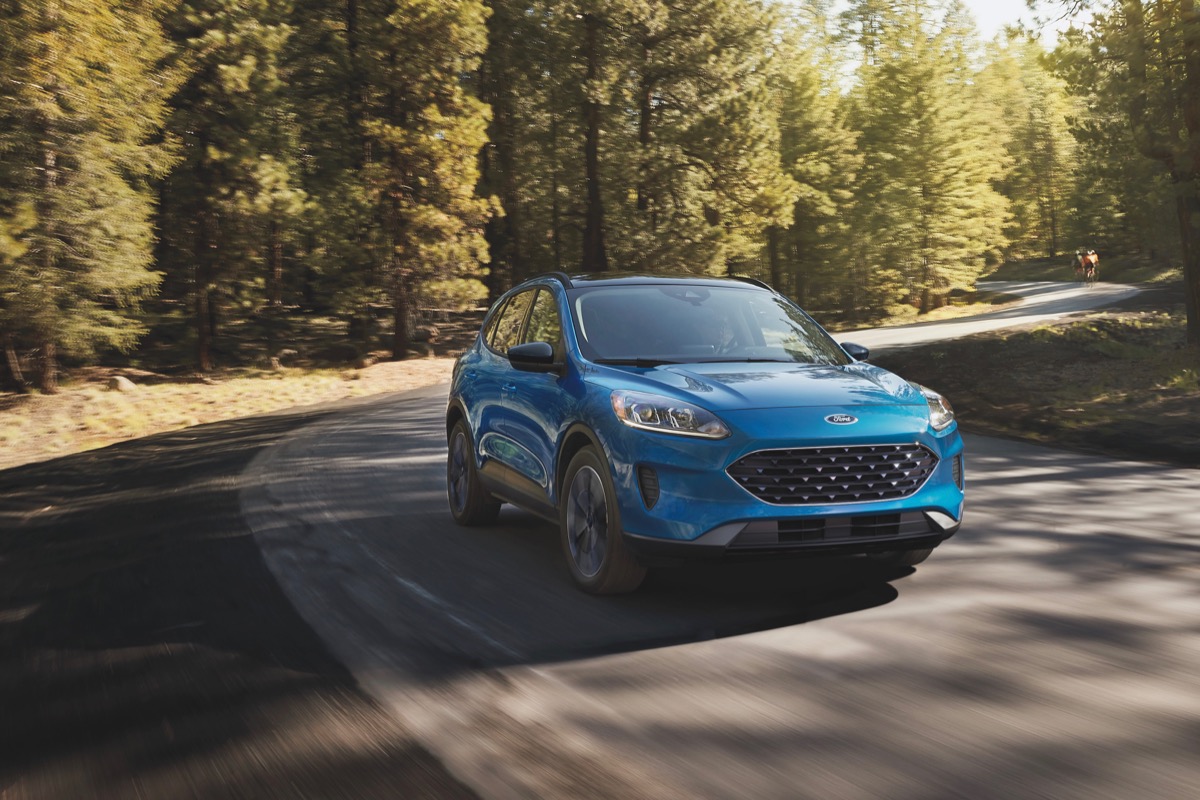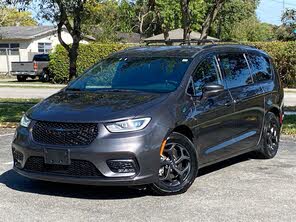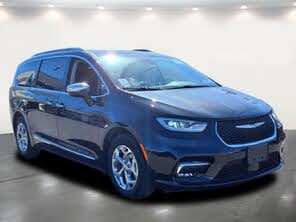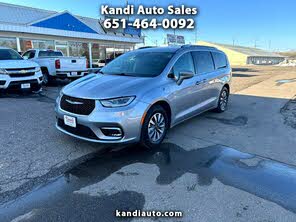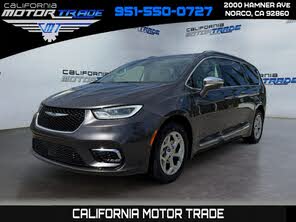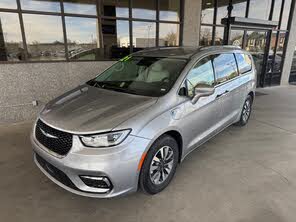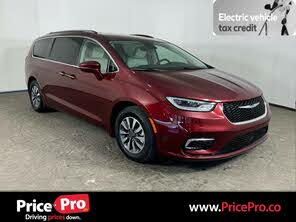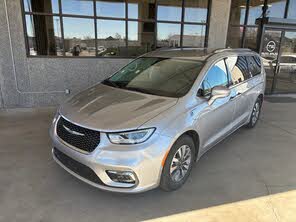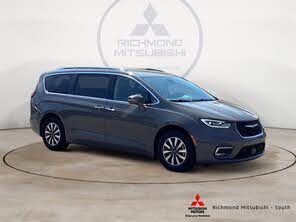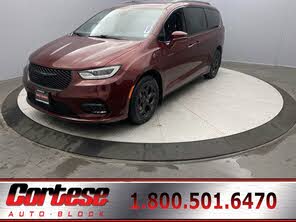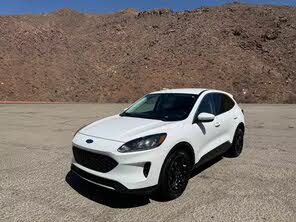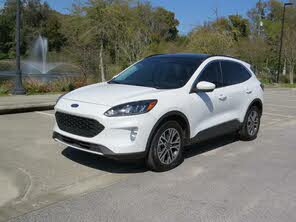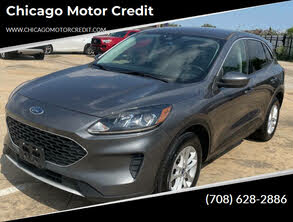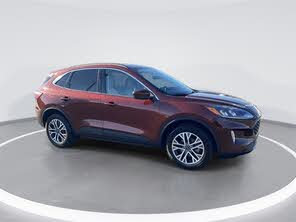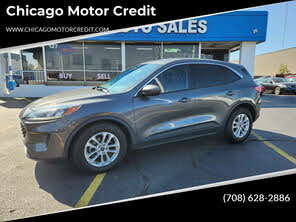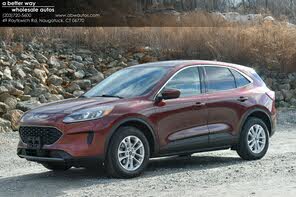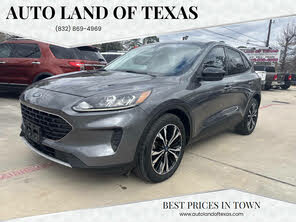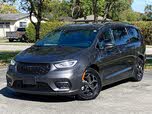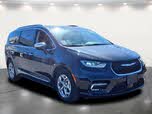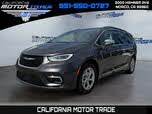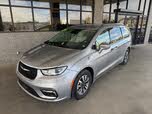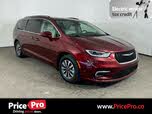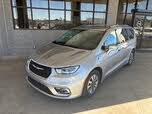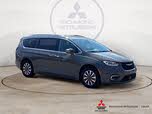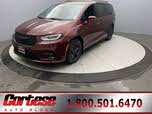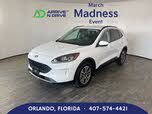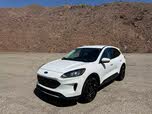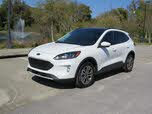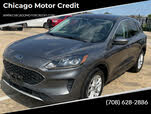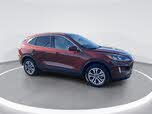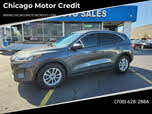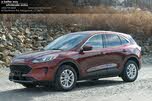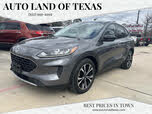2021 Chrysler Pacifica Hybrid vs 2021 Ford Escape
Overview | |
MSRP$43,100 | MSRP$25,555 |
Average price$25,128 | Average price$19,732 |
Listings262 | Listings1181 |
Ratings & Reviews | |
User Reviews | User Reviews |
Expert reviews | Expert reviews6.7 out of 10 |
Pros
| |
2021 Chrysler Pacifica Hybrid Reviews Summary | |
2021 Ford Escape Reviews SummaryThe Ford Escape is the Blue Oval’s compact crossover SUV, and one of the most important models in the automaker’s lineup. It competes in one of the most popular market segments of the moment, against popular vehicles like the Honda CR-V, Hyundai Tucson, Kia Sportage, Nissan Rogue, and Subaru Forester. Ford also views the Escape as the de facto choice for a large slice of its customers. After the automaker eliminated sedans and hatchbacks from its United States lineup, the Escape was left as the most logical choice for keeping existing Fusion and Focus owners in the Ford fold. So in a 2020 model year redesign, Ford gave the Escape more car-like styling, and emphasized fuel efficiency. Following that redesign, the 2021 Escape is largely unchanged. The only differences are new appearance packages and exterior colors, an available tow package, and slightly improved fuel economy for the base powertrain. The trim-level lineup of S, SE, SEL, and Titanium carries over as well. So while we didn’t get a chance to drive a 2021 Escape, we can evaluate it based on our experience with the 2020 model. | |
No video found | No video found |
Popular Features & Specs | |
Engine3.6L 260 hp V6 Hybrid | Engine1.5L 181 hp I3 |
Drive TrainFWD | Drive TrainFWD |
Seating Capacity7 | Seating Capacity5 |
EV Battery Capacity16 kWh | EV Battery Capacity |
MPG City29 | MPG City28 |
MPG Highway30 | MPG Highway34 |
Battery Charge Time (120V)14 hours | Battery Charge Time (120V) |
Battery Charge Time (240V)2 hours | Battery Charge Time (240V) |
Engine | |
Engine Name3.6L 260 hp V6 Hybrid | Engine Name1.5L 181 hp I3 |
Battery Charge Time (120V)14 hours | Battery Charge Time (120V) |
Battery Charge Time (240V)2 hours | Battery Charge Time (240V) |
DrivetrainFWD | DrivetrainFWD |
Fuel Economy | |
EV Battery Capacity16 kWh | EV Battery Capacity |
MPG City29 | MPG City28 |
MPG Highway30 | MPG Highway34 |
Interior | |
Seating Capacity7 | Seating Capacity5 |
Safety | |
Front Crash Overall4 | Front Crash Overall5 |
Side Crash Overall5 | Side Crash Overall5 |
Dimensions & Capacity | |
Cargo Space32.3 cu ft | Cargo Space37.5 cu ft |
Curb Weight5010 lbs | Curb Weight3302 lbs |
Height69.9 in | Height66.1 in |
Length204.3 in | Length180.5 in |
Width90.4 in | Width85.6 in |
Wheelbase121.6 in | Wheelbase106.7 in |
Maximum Payload1313 lbs | Maximum Payload |
Number of doors4 | Number of doors4 |
Overview | ||
MSRP | $43,100 | $25,555 |
Average price | $25,128 | $19,732 |
Listings | ||
Ratings & Reviews | ||
User reviews | ||
Expert reviews | 6.7 out of 10Read full review | |
Pros & cons | Pros
| |
Summary | The Ford Escape is the Blue Oval’s compact crossover SUV, and one of the most important models in the automaker’s lineup. It competes in one of the most popular market segments of the moment, against popular vehicles like the Honda CR-V, Hyundai Tucson, Kia Sportage, Nissan Rogue, and Subaru Forester. Ford also views the Escape as the de facto choice for a large slice of its customers. After the automaker eliminated sedans and hatchbacks from its United States lineup, the Escape was left as the most logical choice for keeping existing Fusion and Focus owners in the Ford fold. So in a 2020 model year redesign, Ford gave the Escape more car-like styling, and emphasized fuel efficiency. Following that redesign, the 2021 Escape is largely unchanged. The only differences are new appearance packages and exterior colors, an available tow package, and slightly improved fuel economy for the base powertrain. The trim-level lineup of S, SE, SEL, and Titanium carries over as well. So while we didn’t get a chance to drive a 2021 Escape, we can evaluate it based on our experience with the 2020 model. | |
Video | No video found | No video found |
Popular Features & Specs | ||
Engine | 3.6L 260 hp V6 Hybrid | 1.5L 181 hp I3 |
Drive Train | FWD | FWD |
Seating Capacity | 7 | 5 |
EV Battery Capacity | 16 kWh | |
MPG City | 29 | 28 |
MPG Highway | 30 | 34 |
Battery Charge Time (120V) | 14 hours | |
Battery Charge Time (240V) | 2 hours | |
Engine | ||
Engine Name | 3.6L 260 hp V6 Hybrid | 1.5L 181 hp I3 |
Battery Charge Time (120V) | 14 hours | |
Battery Charge Time (240V) | 2 hours | |
Drivetrain | FWD | FWD |
Fuel Economy | ||
EV Battery Capacity | 16 kWh | |
MPG City | 29 | 28 |
MPG Highway | 30 | 34 |
Interior | ||
Seating Capacity | 7 | 5 |
Safety | ||
Front Crash Overall | 4 | 5 |
Side Crash Overall | 5 | 5 |
Dimensions & Capacity | ||
Cargo Space | 32.3 cu ft | 37.5 cu ft |
Curb Weight | 5010 lbs | 3302 lbs |
Height | 69.9 in | 66.1 in |
Length | 204.3 in | 180.5 in |
Width | 90.4 in | 85.6 in |
Wheelbase | 121.6 in | 106.7 in |
Maximum Payload | 1313 lbs | |
Number of doors | 4 | 4 |

By: CarGurus + AI
At CarGurus, our team of experienced automotive writers remain at the heart of our content operation, conducting hands-on car tests and writing insightful guides that are backed by years of industry experience. To complement this, we are harnessing AI to make our content offering more diverse and more helpful to shoppers than ever. To achieve this, our AI systems are based exclusively on CarGurus content, ratings and data, so that what we produce is both unique to CarGurus, and uniquely helpful to car shoppers.

